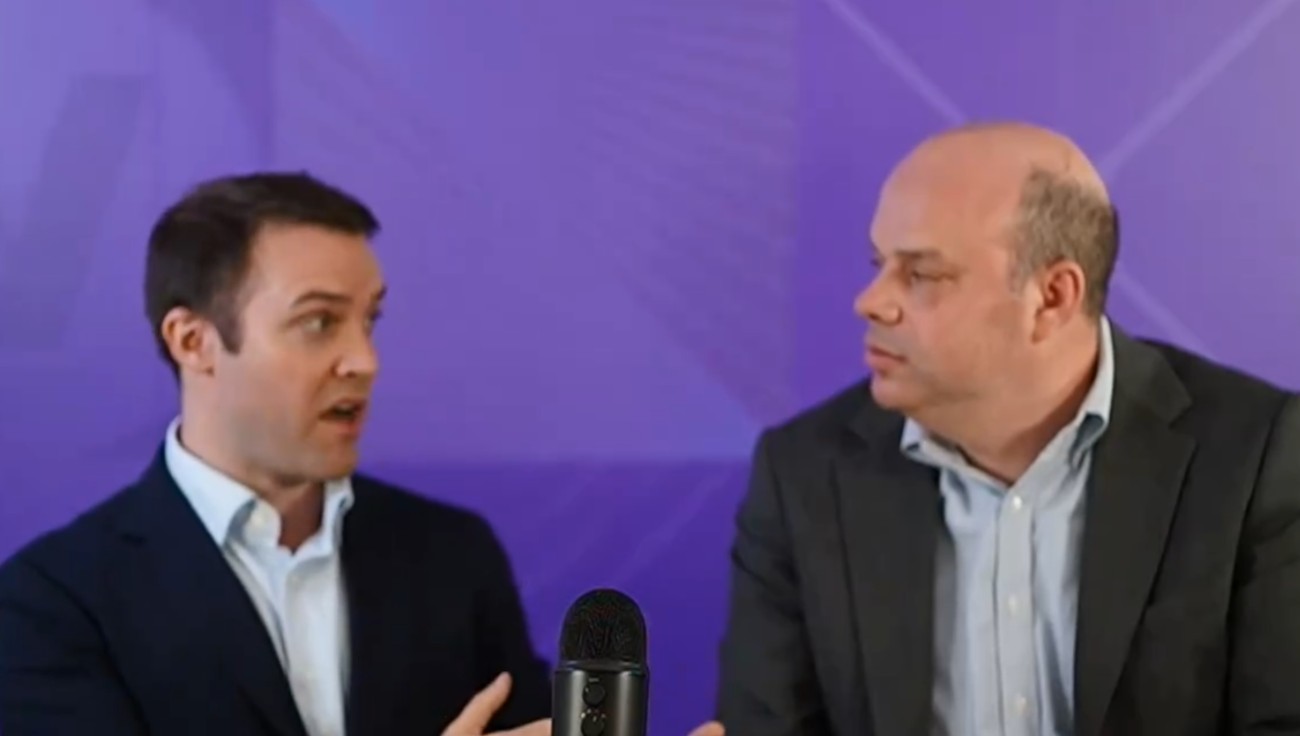Thematic ETFs might have fallen somewhat out of favor in the era of nonstop megacap growth, but as that era comes to a close, investors should explore their options. As thematics become more relevant, identifying the themes that will shape the future is critical. In the recent Midyear Outlook Symposium, Amplify’s CEO Christian Magoon and Xtrackers’ Head of DWS Research Institute Robert Bush shared their thoughts on the comeback of thematic ETFs. TMX VettaFi’s Kirsten Chang moderated the discussion.

Amplify’s Christian Magoon
Do call it a comeback
“Thematic is back,” Magoon said, noting that eight of Amplify’s thematic ETFs have outperformed the S&P 500. “It is time for advisors to take a look at it and add alpha to their broad-based investment portfolios.”
Thematic ETFs benefit from the ability to reinvent themselves. In 2021, cannabis ETFs had a brief moment, but other themes have since emerged, including AI.
How much of your portfolio should go to thematic ETFs?
Magoon thinks 5%-10% of portfolio allocations is a sweet spot for thematic ETFs and that different themes can play different roles in a portfolio. “There are some themes that are more of a trading opportunity than a long-term hold.” Time horizon is an important consideration for investors. Some trends could be short term and some could matter a great deal in the future.
Bush noted that there are thematic ideas that can span multiple sectors and some that can be incredibly niche. “You have to think about the economy of tomorrow,” he said.
Tales from the crypto
Crypto is moving quickly and garnering attention from more institutional investors. “Year to date, a spot bitcoin ETF is the 4th-highest inflow ETF right now,” Magoon said. He noted the Amplify Transformational Data Sharing ETF (BLOK) has been helpful for investors looking for exposure. Crypto volatility remains an issue, but has come down as more institutional investors have entered the space. It remains uncorrelated, and a potentially useful diversifier. BLOK has averaged more than 16% per year returns, according to Magoon.
The world is a (video game) stage, and we are merely players
The Amplify Video Game Leaders ETF (GAMR) tracks the VettaFi Video Game Leader Index. GAMR is a terrific example of an attempt to cover a growing theme. “Three billion people game. The most popular sport is soccer, and only 200 [million]or 300 million people engage with soccer,” said Magoon.
GAMR has diverse exposure throughout the entire gaming ecosystem, including everything from mobile developers to the companies that make computer chips.
Given the importance of gaming globally and culturally, the video game ecosystem could provide investors with opportunities.
Artificial intelligence discussion closes out midyear symposium
Thematic ETFs are making a comeback, and one theme in particular dominates conversation. Artificial Intelligence remains top of mind for investors. TMX VettaFi’s Zeno Mercer and Todd Rosenbluth discussed the disruptive technology.
Mercer kicked things off by taking issue with the term ‘artificial intelligence,’ noting, “Its not artificial anymore, it’s real.” He shared his preference for the term “digital intelligence.”

Asked about the recent 2025 advancements in the AI field, Mercer said open source intelligence has been accelerating. “If you look forward on a five year horizon,” Mercer said, “individuals and institutions will have more options.”
Artificial intelligence continues to generate interest
In a poll of attendees, two thirds saw artificial intelligence as a topic “worth learning more about” while 11% said it was overhyped. “I’ve been using AI for over a decade now, it was a very slow ramp up to get to where we are today,” Mercer shared. “Now, I do feel like it's underappreciated.” As such, Mercer sees AI as becoming more nuanced and personalized instead of relying on broader categorizations.
Mercer envisions artificial intelligence as becoming better with data and increasingly personalized to the user experience. Right now, artificial intelligence leverages broad demographic decisions. Basically, a man in his thirties might get fed information or opportunities based on things other men in their thirties enjoy. But soon AI will more accurately see who an individual is. Consequently, it will better be able to comport to their needs.
I THNQ, therefore I am
The ROBO Global Artificial Intelligence ETF (THNQ) has two thirds of its exposure to AI infrastructure. “AI is increasingly going to be tethered to interacting in the real world,” said Mercer. He noted robots and autonomous vehicles require strong connectivity because they act independently.
Asked if there was an interesting recent company that has been added to the roster, Mercer pointed to Tempus AI. That company aims to create an “AI healthcare quarterback.” Accordingly, Mercer sees it as an exciting example of how AI can be used to improve both clinical care as well as research.
Interested in learning more about how VettaFi can help you build a thematic index? Reach out to our experts.
VettaFi.com is owned by VettaFi LLC (“VettaFi”). VettaFi is the index provider for GAMR and THNQ, for which it receives an index licensing fee. However, GAMR and THNQ are not issued, sponsored, endorsed, or sold by VettaFi. VettaFi has no obligation or liability in connection with the issuance, administration, marketing, or trading of GAMR and THNQ.






